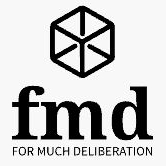#ConspiracyTheories #scepticism #Australia
"Conspiracy theories have leached into public life. Is it scepticism towards power or a complete worldview?
Ideas that were once fringe are increasingly part of Australian public life. Ariel Bogle and Cam Wilson say they may not be about a singular event, but an overarching interpretation of how the world works.
(. . .)
What did people mean when they said they agreed with these ideas? Was it a playful scepticism towards power or a complete worldview? Should we call them all conspiracy theorists? Clearly not.
Conspiracy theories are not just for the 'fringe dwellers of society', the study concluded. 'Our results suggest that basic human motives may give rise to extraordinary beliefs for many ordinary people.'
Many people are suspicious about how power works, and they are right to be. In the United States, it has been argued that conspiracy theories about the 'deep state' – claims that there is a 'shadow government' in control no matter who is voted in – partly emerged from 'excessive state secrecy and official deception'. Australia’s institutions, too, are notoriously secretive and insular. The revolving door between politics and lobbying is well known. Anyone with even the most passing familiarity with our history knows how cruel the state can be, how it was built on violence and displacement, and how it can organise itself against the interests of the people it claims to protect."
https://www.theguardian.com/australia-news/2025/jul/28/conspiracy-nation-book-extract
